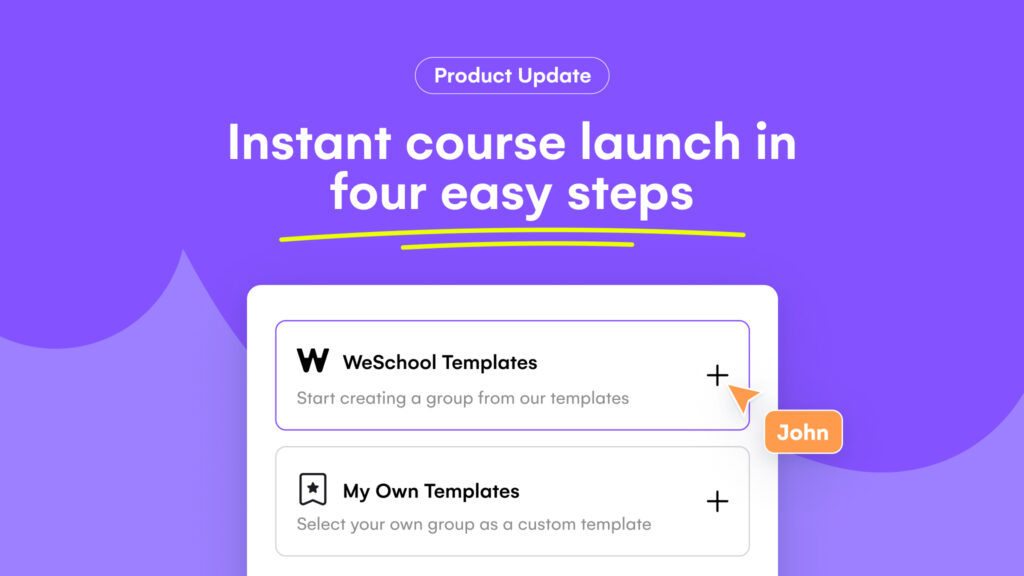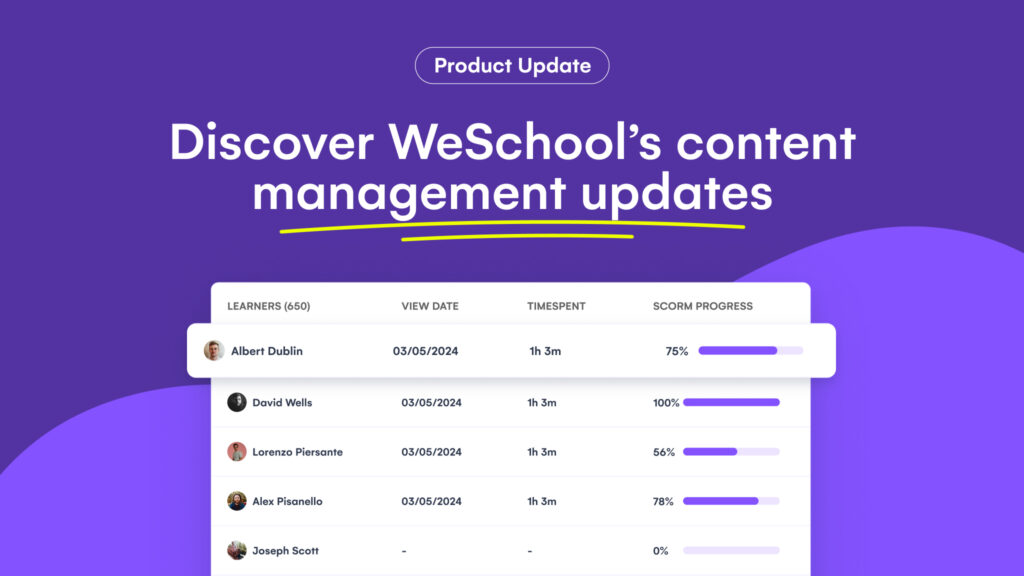In the fast-paced digital-first and remote-first business landscape, teams that once started as a bunch of people doing ‘great’ things are growing at rates they didn’t expect. The remote culture that the pandemic normalized brought opportunities for businesses to double-down on revenue generating activities, saving costs in office space, commutes and miscellaneous costs that racked up their bottom line.
And for those that are not fully remote, Gartner reported that 82% of companies plan to allow employees to work remotely. Meaning that connection, collaboration and visibility over employee performance is important for the changing work landscape altogether.
But this fast growth brings its own challenges when managing learning and development (L&D) programs. To keep up with rapid growth, it becomes crucial for these teams to implement efficient training solutions – especially across teams that work in hybrid or fully online environments.
While many growing teams may not have yet considered a learning platform before, there comes a point when it becomes essential. In this article, we will explore six signs indicating the right time for small teams to invest in an LMS and provide guidance on implementation.
With rapid growth, businesses may not have well-defined structures and processes in place to support effective L&D. Training programs may be ad hoc, lacking consistency and structure. Without a systematic approach, it becomes challenging to develop and deliver high-quality training materials and measure their impact on employee performance.
As small teams experience rapid growth, ensuring consistent training and the transfer of knowledge becomes increasingly difficult. Not only is this important for innovation, but to retain talent too. In fact, 90% of individuals surveyed in the LinkedIn Learning Workplace Report of 2023 would stay at their company if it invested in their personal development.
A learning platform offers a scalable solution for delivering training content to every team member, regardless of their location or time zone.
It is likely that if you are growing, you are also focused on scaling operations, acquiring new customers, and managing increasing demands. In this fast-paced environment, L&D initiatives often take a backseat as immediate business needs take precedence.
Dedicated resources and time for L&D activities can become limited, leading to inefficient training methods that lead to incompletions or disengaged employees. This may indicate the need for a learning platform, as it can simplify the training process by automating administrative tasks and providing a centralized hub for managing and delivering training materials.
It’s also a way to keep everyone in the team accountable to their upskilling, which is increasingly important since 50% of employees will need to reskill by 2025 as adoption of technology increases.
Most businesses struggle with resource constraints, including limited budgets, staffing limitations, and time pressures. Allocating resources for training programs, including dedicated trainers or instructional designers, can be difficult when the immediate focus is on scaling operations and meeting customer demands.
If you find yourself and your team constantly saying you will complete a certain course or that you will learn a specific skill but there is no time for it, a learning platform helps everyone treat learning as another continuous project. With deadlines to set, progress touch points and reminders, the whole process is treated like part of the job.
A decentralized approach to training and learning can lead to a misuse of time and effort from those creating the resources. It also makes them inconsistent. For example, if two team leaders decide to create Welcome documents for new employees, it is likely that their documents will differ. This will impact the team culture created and potentially create antagonism between teams in the long-term.
With a learning platform, this issue is no longer a possibility because all content and knowledge is centralized in a single hub, making the sharing of knowledge and collaboration easier than ever.
People must adhere to compliance and regulatory requirements no matter the size of the company. But it is true that as a team grows, it is harder to assess whether they are adhering to it.
A learning platform helps manage compliance training by providing automated reminders, progress tracking, and documentation of completion, making sure your team stays up-to-date with essential regulations and industry standards.
Without a learning platform, tracking how engaged employees are with training materials and assessing training effectiveness becomes harder. Most platforms have analytics and reporting features to monitor exactly that. But beyond making sure people complete training materials when there’s less visibility over everyone’s time, it’s a way to make your team better.
The bigger a team, the harder it is to see what each person is struggling with. Analytics can help you monitor their progress and identify knowledge gaps. With this information, you can then refine training programs or simply reach out to individuals and support them in a better way.
When implementing a learning platform for a smaller but growing team, choose a solution that not only meets your needs but also offers implementation guidance. This is because it is likely that the company has never had a formal learning solution before, so choosing a partner that guides everyone in the process is crucial to make sure everyone knows how to use the platform from day one.
If you feel like it is time to implement a learning solution, read our latest piece on: “10 questions to ask yourself before choosing an LMS.”
Ready to empower your team with your first learning platform solution? WeSchool’s learning platform not only offers a robust training platform but also provides guidance throughout implementation.
With it, you’ll be able to streamline your training processes, deliver engaging learning experiences, and foster a culture of continuous growth with their expertise. Take the first step today and explore how WeSchool’s platform can transform your team’s training and development initiatives with a free 14-day trial.




Reviews